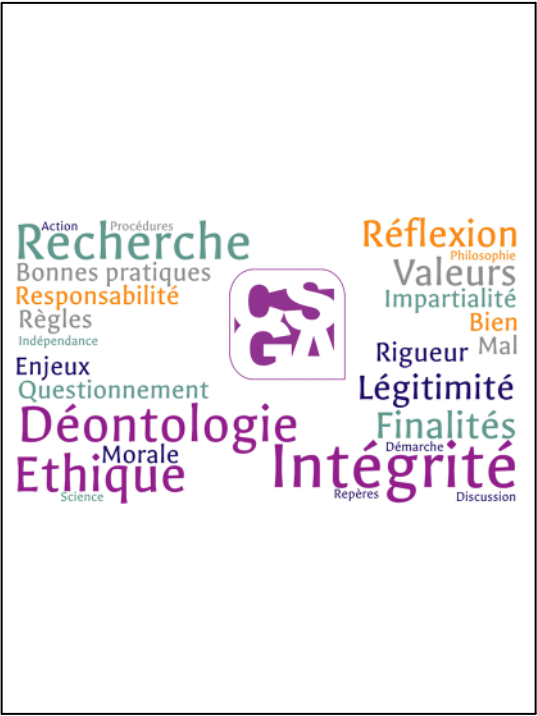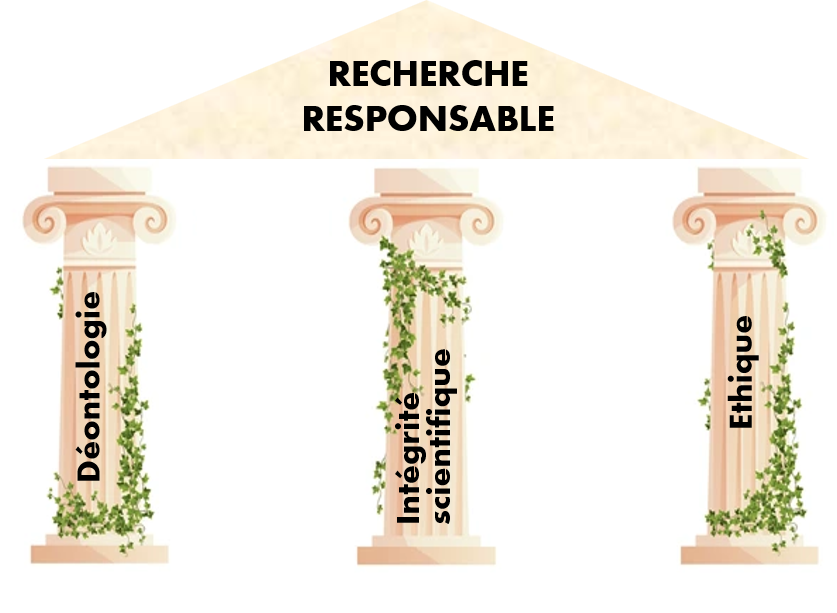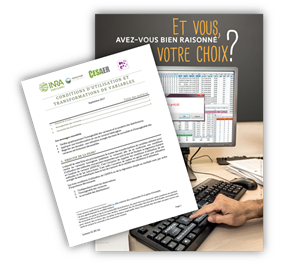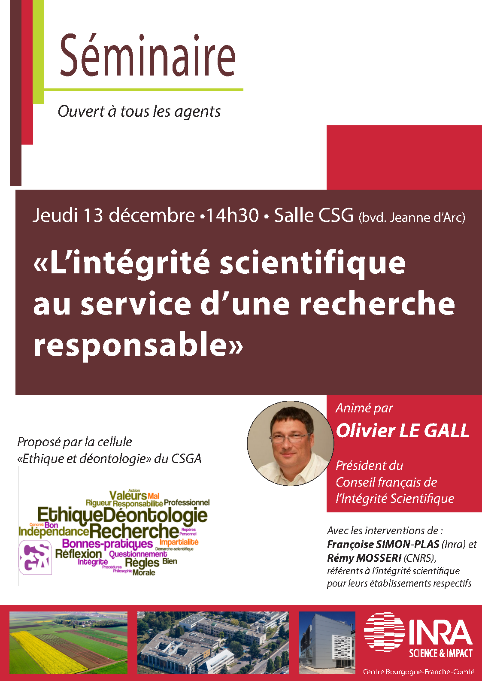ethics, professional conduct and scientific integrity group


The CSGA's mission is to produce and disseminate knowledge in fields linked to the major societal issues of food and health. This requires an honest scientific approach, while respecting the code of professionnal conduct that applies to public research agents, and questioning the ethical aspects of the research carried out. Therefore, the CSGA set up an “ETHICS, PROFESSIONAL CONDUCT AND SCIENTIFIC INTEGRITY” committee in 2012, composed of volunteer members.
Ethics, professional conduct and scientific integrity are the three pillars of responsible research, guaranteeing the general interest and a relationship of trust between science and society. Ethics is a consideration of the values, purposes and consequences of our research activities, with the aim of determining the right and proper action to take. Professional conduct is a code of professional practice that defines the duties of civil servants, who are required to demonstrate probity, dignity, neutrality and transparency. Scientific integrity refers to a set of best practices that must guide, with rigor and honesty, every stage of the research process to ensure the reliability of the results produced.
Goal of the committee
- Providing a place for consideration of the ethical issues potentially raised, either theoretically or practically, by the center's research themes and projects, as well as by their execution.
- Keeping up-to-date with regulations and resources in this field, notably from supervisory bodies (INRAE, CNRS, Université Bourgogne Europe, Institut Agro Dijon), ministries and international bodies.
- Raising awareness among CSGA staff of issues relating to ethics, professional conduct and scientific integrity, and provide them with a framework to listen to and discuss their research practices.
In this way, the unit promotes the values of deontology, rigor, honesty and ethics that guide the CSGA's research activities.
Examples of proposed actions
- Organization of conferences and seminars
- Identification and communication of useful resources (national and international guidelines and standards, websites, training courses and MOOCs)
- Drafting of notes and opinions on request (management, unit council, agents) or by self-referral ("Authorship and rules for signing scientific articles" , "How to avoid predatory journals?" , "Good statistical practice" in collaboration with statisticians from the INRAE Bourgogne-Franche-Comté center)
- Promotion of professional conduct, research ethics and scientific integrity among newcomers and students



